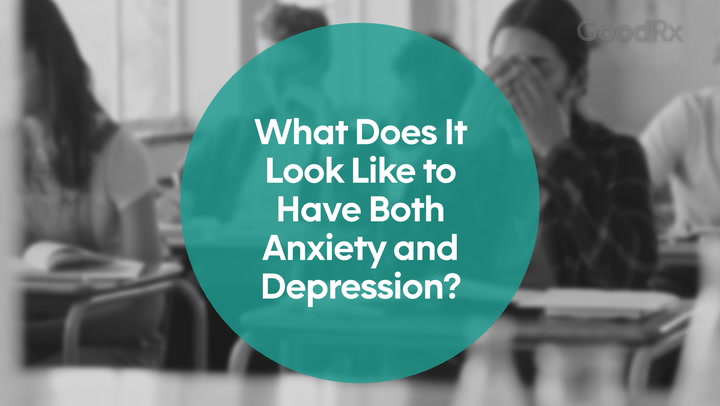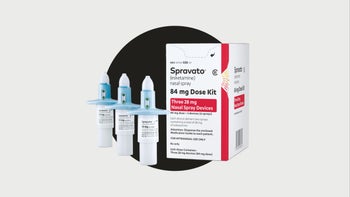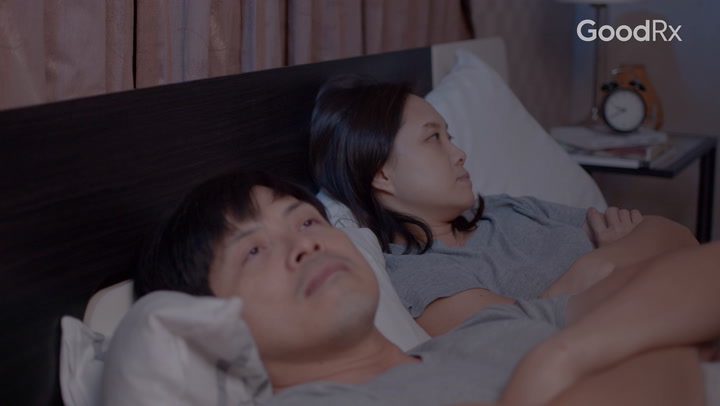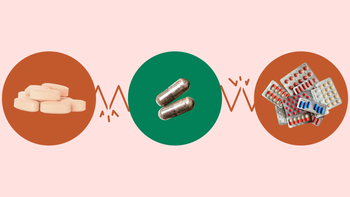
Can You Drink Alcohol With Antidepressants Like Cymbalta or Amitriptyline?
Key takeaways:
If you’re taking Cymbalta (duloxetine), amitriptyline, or a similar antidepressant, it’s best to avoid alcohol.
Combining antidepressants and alcohol can worsen side effects and raise the risk of serious health issues, such as liver damage or blackouts. The risk goes up with large amounts or chronic use of alcohol.
No amount of alcohol is considered completely safe when you’re taking an antidepressant. But your prescriber can let you know if an occasional drink is OK based on your personal medical history.
Access savings on related medications
Table of contents

It’s common to reach for an alcoholic beverage in many situations — whether you’re celebrating, socializing, or looking for stress relief. But if you’re taking an antidepressant medication such as Cymbalta (duloxetine) or amitriptyline, you may want to think twice before you raise a glass.
Can you drink alcohol while taking antidepressants like Cymbalta or amitriptyline?
No, it’s not recommended to drink alcohol with these antidepressants. Combining alcohol and antidepressants like Cymbalta or amitriptyline can raise the chance of serious side effects. What’s more, alcohol can worsen the health condition you’re taking these medications for in the first place.
Let’s take a closer look at how alcohol affects Cymbalta, amitriptyline, and similar types of antidepressants.
Good to know: The interaction between alcohol and selective serotonin reuptake inhibitors (SSRIs) such as Zoloft (sertraline) is covered in another GoodRx Health article.
What are the risks of combining Cymbalta and alcohol?
Cymbalta is a serotonin and norepinephrine reuptake inhibitor (SNRI). SNRIs work by raising levels of brain chemicals called serotonin and norepinephrine to help improve mood and treat depression and pain. Examples of other SNRIs include venlafaxine (Effexor XR) and desvenlafaxine (Pristiq).
Search and compare options
Drinking alcohol while you’re taking an SNRI such as Cymbalta raises your risk of side effects. Common Cymbalta side effects include:
Nausea
Dry mouth
Drowsiness
Sweating
Blood pressure changes
Alcohol can cause similar side effects. Combining the medications not only makes side effects more likely, but it can make them more severe, too.
What’s more, drinking alcohol while taking Cymbalta raises your risk of liver damage. Both Cymbalta and alcohol can cause liver problems on their own. But the risk goes up when they’re taken together — especially if you have multiple drinks at a time or drink alcohol regularly.
What are the risks of combining amitriptyline and alcohol?
Amitriptyline is a tricyclic antidepressant (TCA) that also works by raising the levels of chemicals such as serotonin and norepinephrine in the brain. Other TCAs include nortriptyline (Pamelor), imipramine (Tofranil), and doxepin.
Common amitriptyline side effects include:
Sleepiness
Dizziness
Confusion
Headache
Dry mouth
Weight gain
TCAs such as amitriptyline are more likely to cause dizziness, drowsiness, and confusion than other types of antidepressants. This is because they block a chemical called acetylcholine in the body. Combining amitriptyline and alcohol can cause extreme drowsiness and may cause you to pass out or experience a blackout.
Alcohol can also raise the levels of amitriptyline in your body. High amitriptyline levels can cause serious side effects such as seizures and abnormal heartbeats.
How much alcohol can you drink while taking an antidepressant?
People often ask if having an occasional drink is safe while taking antidepressants. Unfortunately, there’s no information to show that any amount of alcohol is safe to drink when you’re taking antidepressants like Cymbalta and amitriptyline.
It’s possible that an occasional beverage now and then may be OK. But this depends on a lot of other factors, such as your age, medical history, and other medications you’re taking. So it’s best to talk to your prescriber about if and when it’s safe to drink alcohol with your antidepressant medication.
Are certain people more at risk when combining alcohol and antidepressants?
Combining alcohol with antidepressants may be more dangerous for certain people. In general, older adults are at a higher risk for complications since their bodies don’t process alcohol and medications as effectively as younger people.
Similarly, liver disease can slow down how both alcohol and some antidepressants are cleared from the body. This can raise their levels and increase the risk of side effects.
How does alcohol affect depression, anxiety, and other health conditions?
Not only can alcohol interact with antidepressants, it can also worsen the conditions you’re taking them for.
Alcohol and depression or anxiety
While drinking alcohol may temporarily distract from feelings of sadness, it can worsen depression in the long run. The same is true when it comes to alcohol and anxiety symptoms.
Alcohol can have a negative effect on your mood and elevate feelings of anxiety. It can also make it more difficult for you to get a good night’s sleep, which may worsen depression symptoms. And alcohol use disorder can make your risk of developing depression even higher.
Alcohol and other health conditions
Cymbalta and amitriptyline are prescribed for more than just depression.
Cymbalta is sometimes used to treat neuropathic pain, a form of shooting or burning pain caused by nerve damage. Drinking alcohol, especially in large amounts, can also contribute to nerve damage and worsen neuropathy symptoms.
Amitriptyline is sometimes prescribed off-label for migraines. And alcohol is a well-known migraine trigger.
Both of these antidepressants are also prescribed for chronic pain (another off-label use for amitriptyline). Alcohol can worsen pain symptoms and make chronic pain more likely. And chronic pain may increase the chance you’ll develop alcohol use disorder if you’re using alcohol to self-medicate your symptoms.
When can you start drinking once you stop taking Cymbalta or amitriptyline?
It depends. It’s best to wait until you’ve stopped taking an antidepressant and it’s cleared from your body before drinking alcohol. But in most cases, antidepressant doses are slowly decreased over a period of time before being stopped completely. And the time it takes to safely stop an antidepressant may vary depending on your response.
You shouldn’t try to work around this by skipping a dose of your antidepressant or stopping it abruptly in order to drink alcohol. Doing so can lead to withdrawal symptoms and cause harm to your physical and mental health.
Ask your prescriber for guidance on when it’s safe to start drinking alcohol once you’ve stopped taking an antidepressant. But check to make sure alcohol doesn’t interact with your other medications or health conditions first.
Are there any antidepressants that aren’t affected by alcohol?
There aren’t any antidepressants that are completely safe to combine with alcohol.
Some healthcare professionals believe that light to moderate drinking is OK with SSRIs such as sertraline, fluoxetine (Prozac), and escitalopram (Lexapro). But SSRIs work by raising serotonin levels in the brain. And drinking alcohol also temporarily raises serotonin levels. The combination may lead to serotonin syndrome, which happens when there’s too much serotonin in your body. It can cause symptoms such as dangerously high blood pressure, muscle twitching, and agitation.
It’s also important to note that some antidepressants — such as monoamine oxidase inhibitors (MAOIs) — have more dangerous interactions with alcohol than SSRIs, Cymbalta, and amitriptyline.
As mentioned, the risk of combining alcohol and antidepressants varies based on many factors. So it’s best to discuss your personal situation with your prescriber. It’s also a good idea to let them know if you’re having trouble limiting or avoiding alcohol. They can provide resources to help.
The bottom line
If you’re taking antidepressants such as Cymbalta (duloxetine) and amitriptyline, it’s best to avoid alcohol. Drinking with these antidepressants can make side effects worse and raise your risk of liver damage. Alcohol can also worsen the symptoms of the condition you’re taking an antidepressant to treat.
No amount of alcohol is considered safe if you’re taking Cymbalta, amitriptyline, or similar antidepressants. But your prescriber can let you know if an occasional drink is OK based on your personal medical history.
Why trust our experts?


If you or someone you know struggles with substance use, help is available. Call SAMHSA’s National Helpline at 1-800-662-4357 to learn about resources in your area.
References
Amatsu, T., et al. (2022). Relationship between alcohol intake and chronic pain with depressive symptoms: A cross-sectional analysis of the Shika study. International Journal of Environmental Research and Public Health.
Boissoneault, J., et al. (2019). Characterizing chronic pain and alcohol use trajectory among treatment-seeking alcoholics. Alcohol.
Hudson, C. J. (1981). Tricyclic antidepressants and alcoholic blackouts. The Journal of Nervous and Mental Disease.
Julian, T., et al. (2019). Alcohol-related peripheral neuropathy: A systematic review and meta-analysis. Journal of Neurology.
Kuria, M. W., et al. (2012). The association between alcohol dependence and depression before and after treatment for alcohol dependence. International Scholarly Research Network Psychiatry.
Laban, T. S., et al. (2023). Monoamine oxidase inhibitors (MAOI). StatPearls.
Lovinger, D. M. (1997). Serotonin’s role in alcohol’s effects on the brain. Alcohol Health and World Research.
Lunn, M. P. T., et al. (2014). Duloxetine for treating painful neuropathy, chronic pain or fibromyalgia. Cochrane Database of Systematic Reviews.
Meier, P., et al. (2008). Age, alcohol metabolism and liver disease. Current Opinion in Clinical Nutrition and Metabolic Care.
Moraczewski, J., et al. (2023). Tricyclic antidepressants. StatPearls.
Stein, M. D., et al. (2009). Disturbed sleep and its relationship to alcohol use. Substance Abuse.
Weathermon, R., et al. (1999). Alcohol and medication interactions. Alcohol Research and Health.
For additional resources or to connect with mental health services in your area, call SAMHSA’s National Helpline at 1-800-662-4357. For immediate assistance, call the National Suicide Prevention Lifeline at 988, or text HOME to 741-741 to reach the Crisis Text Line.

























